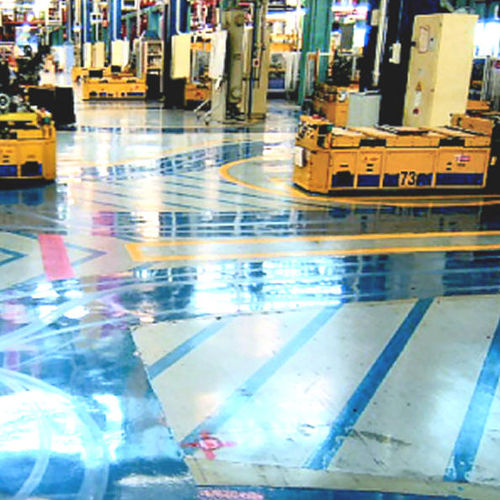
#Industry News
Resin floors with low VOC emissions: benefits for health and the environment
also the Epoxy Resin can be Green
Resin floors with low VOC emissions (volatile organic compounds) offer several significant benefits for workers' health and the surrounding environment. VOCs are chemicals that can be released from various products, including certain flooring materials, and can have adverse effects on indoor air quality and human health. Low VOC resin floors are designed to minimize the release of these harmful chemicals, making them a healthier and more environmentally friendly flooring option. Let's explore the in-depth analysis of these floors and their advantages:
1. Improved indoor air quality: Low VOC resin floors help maintain better indoor air quality in industrial, commercial, and residential spaces. Reduced VOC emissions mean fewer harmful chemicals are released into the air, leading to a healthier and more comfortable work environment for employees.
2. Minimized health risks: Exposure to high levels of VOCs can lead to various health issues, such as eye, nose, and throat irritation, headaches, nausea, and respiratory problems. Low VOC resin floors mitigate these health risks by limiting the emission of these hazardous chemicals, protecting workers from potential health problems.
3. Enhanced worker comfort and productivity: By promoting a healthier indoor environment, low VOC resin floors contribute to improved worker comfort and well-being. Employees working in spaces with better air quality are likely to experience fewer health-related issues, leading to increased productivity and job satisfaction.
4. Compliance with health and safety standards: Many industrial and commercial sectors have specific regulations and standards regarding indoor air quality and VOC emissions. Choosing low VOC resin floors ensures compliance with these health and safety requirements.
5. Reduced environmental impact: Low VOC resin floors are more environmentally friendly compared to traditional flooring materials with higher VOC content. The lower emissions contribute to reducing outdoor air pollution and its associated negative effects on the environment.
6. Contribution to green building certifications: Green building certifications, such as LEED (Leadership in Energy and Environmental Design), reward the use of environmentally friendly building materials, including floors that do not release harmful substances. In addition to the low VOC value, which is essential for making construction site interventions with a lower impact, in construction or renovation projects, companies can earn points to obtain green building certifications. In this case, the materials must be certified, demonstrating that the completed and hardened coating does not release harmful substances.
7. Sustainable manufacturing processes: Manufacturers of low VOC resin flooring often implement sustainable practices, such as using renewable resources and reducing waste. By choosing these products, companies support environmentally responsible manufacturing processes.
8. Long-term performance and durability: Low VOC resin floors offer the same high performance and durability as traditional resin floors. They are resistant to wear, impact, chemicals, and stains, ensuring a long lifespan and reducing the need for frequent replacements, further benefiting the environment.
In conclusion, low VOC resin floors provide a multitude of advantages for workers' health and the environment. They improve indoor air quality, minimize health risks, enhance worker comfort and productivity, comply with health and safety standards, reduce environmental impact, and contribute to green building initiatives. With their sustainable manufacturing practices and long-term performance, low VOC resin floors offer a responsible and eco-friendly flooring solution for various industrial and commercial applications.






